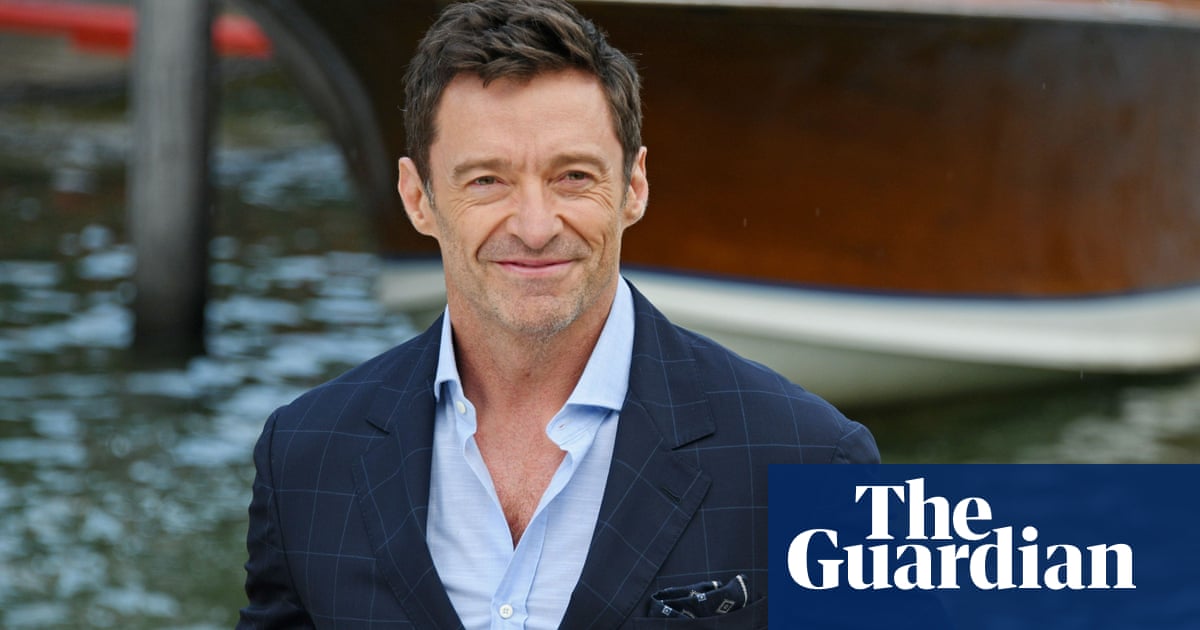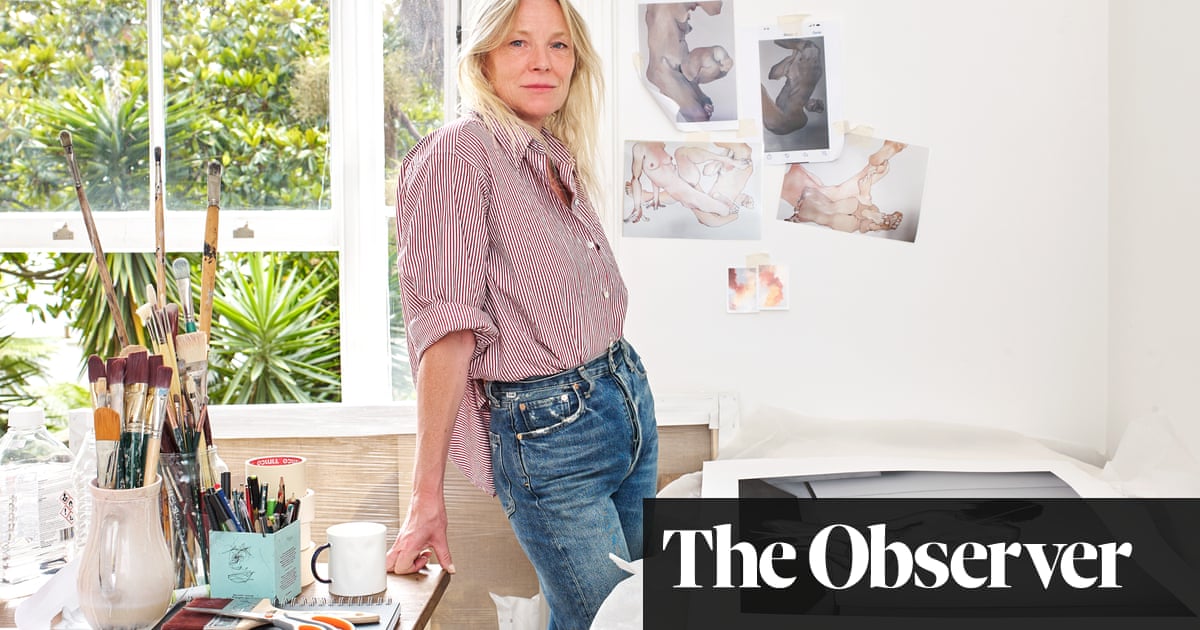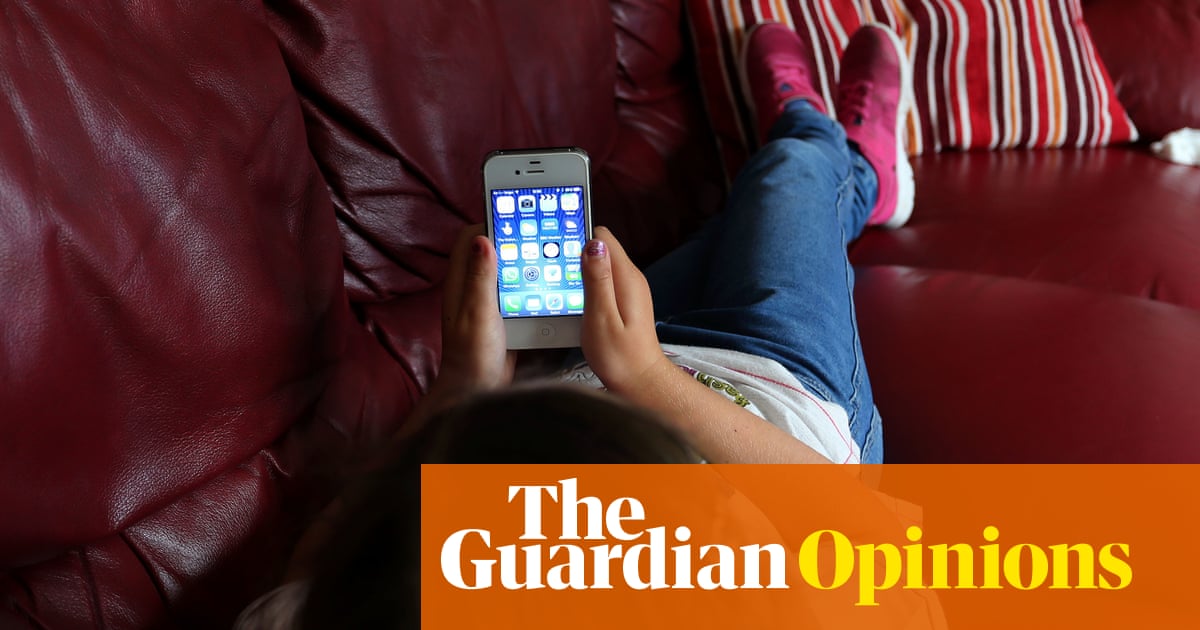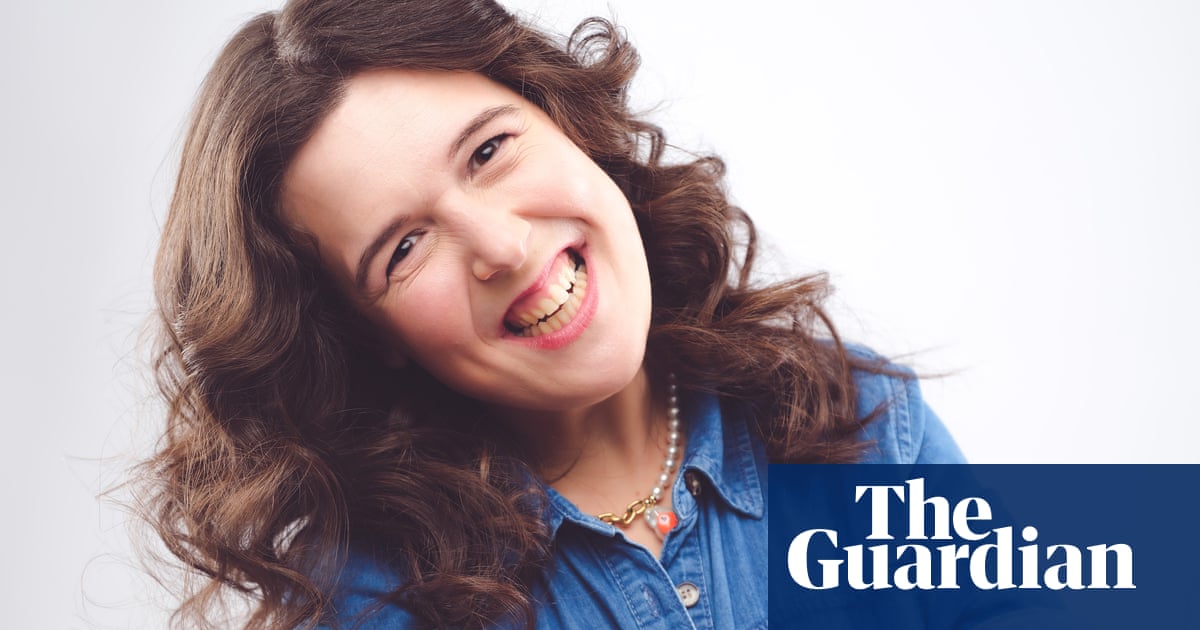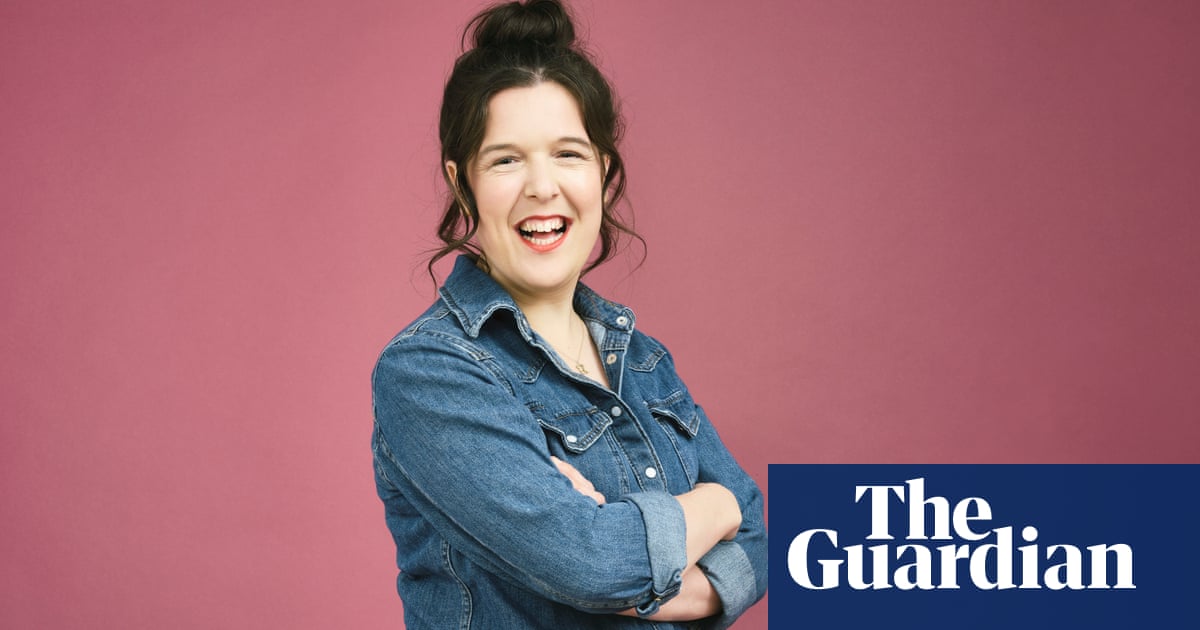
Rosie Jones always wears earphones when she’s out alone. She jokes it is for pleasurable reasons – “a chance to listen to Steps” – but it is actually to block out something much more menacing: when strangers see her walk down the street with her movement affected by cerebral palsy, they shout abuse at her.
Jones, 33, doesn’t need to go outside to be harassed. As one of the few disabled women regularly on British television, Jones can be in her north-east London flat and get a similar reaction on Twitter, where she has 220,000 followers. “I try to have a healthy relationship with social media, but there’s this ableist abuse,” she says. “You can’t avoid it.”
We’ve met to discuss Jones’s upcoming Channel 4 documentary, Am I a R*tard?, about the online abuse she’s received since finding fame, and within wider society. The title has proved controversial even before the show has been broadcast. Last week, some disabled contributors pulled out of the programme over “a number of issues in the process”, including producers allegedly resisting their calls to remove the slur from the title.
“I understand that there are some people who are unhappy with the title,” Jones tells me. “The production company and the channel had many, many discussions about it. I’m not attempting to speak for the entire disabled community in any way. This film is about my experience as a person with a physical disability [and a] word that’s still used extremely frequently, and thrown towards me in the street or on social media. This title is not used to shock. It’s about education and starting the conversation about how damaging the casual use of ableist language is. I’m taking back control of a word that’s been thrown at me as a weapon all of my life.”
It is uncharacteristically dark territory for a comedian known for her wide grin and Energizer Bunny-levels of enthusiasm but, at first glance, Jones shows no signs of it bringing her down. When we talk, she is sleep-deprived after five consecutive nights of shows (“I only got back to London at 2am this morning”), but still on a high. “I’m very, very happy,” she says. “I had my mum, my dad and all their friends in the audience. It was the first time my parents had seen this show. I think they find it hard to comprehend.”
You can’t blame them. Six years ago, Jones was working by day as a researcher for Channel 4 comedy and gigging in standup clubs every night. “Now I’m on the shows I used to work on.”
Born in Bridlington, east Yorkshire to teacher parents, Jones’s star has risen rapidly since her debut show at the Edinburgh fringe in 2017. Cutting her teeth as a regular on TV shows such as The Last Leg, she went on to front the wonderfully chaotic travel show Trip Hazard: My Great British Adventure and picked up a Bafta nomination in the process. That’s not to mention her stint in the writer’s room for Netflix’s award-winning Sex Education, acting jobs from Casualty to Silent Witness, or her two books for children.
If success has come quickly, it hasn’t been easy. Jones has been working non-stop since she quit her day job – “I probably haven’t had a full day off in four years” – but stresses it is entirely her choice (her agent, she admits, often asks if she wants a break). Today is, on paper, a day off but she’s here speaking to me, then taking meetings and writing an article. “If something’s exciting, you’ve got to press go,” she says.
Now embarking on her first UK headline tour, Triple Threat (a joyously on-brand nod to being gay, female and disabled), the reality is that these characteristics also bring her triple the amount of online vitriol. Even so, it is ableism – defined as prejudice against disabled people – that plagues Jones the most, and something she believes is treated much less seriously than other forms of bigotry. “I feel like if you asked the average person in the street what racism or sexism was, they’d be able to tell you in a few words. But when it comes to ableism, some people have never even heard of the word. Others have but can’t define it. They go: ‘Really, is that a thing? Do you get discriminated against?’ ‘Yeah, every fucking day!”
From her very first television appearance – on the panel show 8 Out of 10 Cats in 2017 – Jones has received ableist trolling, ranging from the patronising (“Where’s her carer? Poor thing”) to the hateful (“Stop letting crip(s) think they’re funny”). When she went on Question Time in 2020, the abuse exploded. “I attracted a new audience: people who didn’t agree with my political beliefs,” she says. “They couldn’t find the words to express it so they just attacked my disability or appearance. They’re the low hanging fruits. The amount of abuse I got was overwhelming. Even the strongest person couldn’t deal with that.”
This is not ‘just’ the rough and tumble women and minorities in the public eye are somehow expected to endure in the age of social media. Jones has been told she should be “put in a cage”. She has received death threats. “I’m going to hunt you down, pour acid down your throat and rape you,” read one tweet. Jones didn’t feel she could go to the police. “I don’t know how seriously it would be taken.” The deluge of abuse got so bad that two years ago Jones hired a company to help her use social media without seeing the hateful comments.
“For my sake,” she says, “but for my followers, too. No one should have to see that.” The company effectively blocks out the trolls in lieu of social media companies taking the responsibility. “Social media platforms aren’t interested in being accountable,” she stresses. “They’re fuelled by hate. That’s how they get more users, more money.”
At one point in the documentary, Jones temporarily removes the paid-for moderation and is shown hundreds of abusive tweets on a huge cinema screen. Some verge on the legal definition of hate speech. Jones is visibly upset but it’s still only a hint at what she’s felt behind the camera in recent years. “I don’t think anybody could read that much abuse directed at them and not have it take a toll on their mental health,” she says. “I feel anxious whenever I need to go on social media, I find it difficult to ignore. But I’m trying.”
Last year, Jones started therapy to help cope. “Filming the documentary was also taking its toll on me. I found myself using jokes more as a coping mechanism, something I’ve done all my life. I was feeling sad and angry with the world. It took me a long time to be able to say: ‘I’m angry. I’m angry with how the world treats me and other disabled people.’ The documentary made me confront things about my disability that I’d perhaps kept in a drawer.”
At the same time, Jones was finding it hard to live with her growing fame. “I was starting to be recognised whenever I went out, and it’s [strange] because they don’t actually know you. People who come up to me in public are often lovely but it was a lot to deal with. I feel grateful I could financially afford the therapy to practise self-care.”
Jones’s outlook is both interesting and admirable. Boisterous and positive, she’s clearly enjoying herself and tells me repeatedly how much she “loves, loves” every opportunity she’s been given. But she also admits she’s more than the grin you see on a panel show. “I’m not this happy person all the time,” she says. “I don’t want other disabled people to look at me and think that I am, or that I don’t find things difficult. I’m not proud of being disabled every day. Life would be easier if I didn’t have cerebral palsy. I love this job but it’s still hard.”
Get past the initial exuberance and she speaks like someone who is all too aware that – to some – her very existence as a disabled woman is at best confronting and, at worst, unnatural. “I know I’m always going to be dealing with more than comedians who aren’t disabled,” she says. “I’m out there being disabled, sexual, proud, rude, flawed … That’s scary for a lot of people – people who are used to thinking of disabled people as tragic or angelic. I don’t fall into their archaic stereotypes.”
I meet Jones a couple of weeks after the charity Scope has criticised media coverage framing disabled people as a strain on the taxpayer. Does she think the media plays a role in stoking ableist attitudes? “Oh definitely,” she nods. “I think they portray people with disabilities as victims and burdens. I am disappointed and angry: I thought we’d moved on and made progress, but clearly we haven’t.”
For someone who launched her career with the aim of making people laugh, it’s not without irony that Jones is now using her platform to discuss a topic that is, by any definition, pretty bleak. But this isn’t the first time Jones has found herself in the role of activist: she’s frequently spoken out about the lack of representation of disabled people in the arts as well as the impact of government cuts. “Right now, the people with disabilities who truly have a platform to speak about these topics are few and far between,” she notes. “I want to use my platform for good.” That must be a lot of pressure, I say. “Yes, and I don’t think that my straight, white, non-disabled male comedian colleagues are expected to be so outspoken and political. But I try to make it clear that I don’t speak for all disabled people, I can only speak for myself and my own experience. On the flip side, the belief that I’m making a difference, changing things for the better, is incredible, so it’s worth it.”
It isn’t always plain sailing. Jones has also been criticised for playing comedy clubs that weren’t fully accessible to disabled people – largely due to the fact very few smaller venues are. She says she “fully understands” the upset. “I’m often part of a mixed-bill comedy night and if I were to turn the job down I’d be replaced by a comedian that would almost definitely be non-disabled. I believe I can make more of a difference by performing in those spaces and letting audiences see a proud disabled woman. I also have a frank conversation with the organisers who, after meeting me, make their venue a little bit more accessible, which is amazing. I’m responsible for making small theatres a tiny bit more disabled-friendly, one hand rail at a time!”
Now fronting her own tour, Jones is proud she finally has the control to make sure every venue she performs in is accessible. Her favourite part of touring, she says, is meeting the audience after the show. “I love that there’s non-disabled people there. I’m just a comedian like any other to them. And I also love to see all the disabled people in the crowd. They say, ‘Before you, I never saw anyone like me on stage.’” At the weekend, one fan gave her a bag of handmade badges adorned with disability pride slogans. “Disabled icon,” one reads. “Fuck ableism,” says another. It is a message that clearly keeps Jones going – and is a middle finger to the trolls.
Rosie Jones: Am I a R*tard airs on Channel 4 in mid-July. She is touring the UK with her show Triple Threat – tickets can be bought via rosiejonescomedy.com





